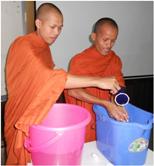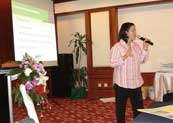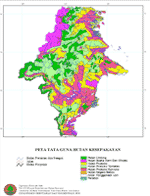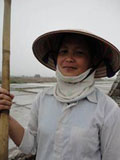
|

|
|
Home Learnings from MID-BCC: End of Project Materials FHI360 Bangkok Project Office: Learn About Us About The MID-BCC Project Blog Materials Communications Research Training/Capacity Building Advocacy/Policy Malaria Dengue Fever Avian and Pandemic Influenzas Other Infectious Diseases Innovations Risk Communication Updates and News Clips Partners/Resources Spotlight Archive Contact Us PreventProject.org AI.COMM h1n1vax.aed.org Follow @MIDBCC |
Spotlight ArchiveTeam Bird Flu: Soccer in CambodiaAugust 1, 2012
USAID and AusAID Join Forces Against Emerging Pandemic Disease Threats in Southeast Asia under Memorandum of CooperationJuly 11, 2012The U.S. Agency for International Development (USAID) and the Australian Agency for International Development (AusAID) signed a memorandum of cooperation on June 6, 2012 to help reduce the risk of emerging pandemic disease threats in the Mekong region of Southeast Asia. Under the memorandum, AusAID is providing Aus$6 mil. to MID-BCC's sister project, USAID's PREVENT project. The memorandum reflects USAID FORWARD, a new reform effort which includes a greater emphasis on collaboration and partnership with bilateral donors, multilateral, and international organizations to increase synergies and avoid duplication. See the full release here. top of pageMID-BCC's use of SMS technology highlighted by USAID/RDMAJune 18, 2012USAID's MID-BCC's application of mobile phone SMS technology for data collection is being conducted at cross border locations in Mukdahan, Thailand and Savannakhett, Lao PDR. This innovative approach to data collection has been highlighted on USAID/RDMA (Thailand) webpage. MID-BCC's research technical lead, Kanokwan (Pook) Suwannarong, is shown explaining the process in the image. Full story is available here. top of pagePREVENT Project Indonesia Desk ReviewJune 15, 2012
Download here or on under Research top of page MID-BCC and PREVENT contribute to Towards a Safer World Inagurual Newsletter
Check out the newsletter here. top of page MID-BCC introduces a series of blogs from the field on different components of our work under the project. Our contributors include Cecile Lantican, Lao PDR Country Coordinator; Tongngy Kaing, Cambodia communication consultant; and Anton Schneider, Regional BCC Advisor. The MID-BCC Blog will now also feature blogs from PREVENT Project while its website is under development. Please visit the Blog Section to learn more! top of page
See the impact of one club in Kien Giang province, told by its members, in FAO's Vietnam's Farmers in Dialogue. top of page March in the Mekong: Now on Pinterest
top of page Training Monks as Avian Influenza Trainers in Cambodia 
AMID-BCC hosted a training for Buddhist monks on avian influenza prevention at the Phnom Penh FHI 360 office on February 27. The training is part of MID-BCC's strategy to improve communication to help reduce the chance of outbreaks in Cambodia. At USAID/Cambodia's invitation, Berengere deNegri, FHI 360 Behavior Change and Communication (BCC) technical expert, visited Phnom Penh to do an assessment and make recommendations to the government and USAID on interventions. During her stay, she led the training of 10 monks. top of page Mobile Phone Technology Helps to Monitor Disease Outbreaks and Health Behaviors in Lao PDR  Use of mobile phones to communicate with family, friends and coworkers, especially in the provincial capitals and some district towns, is becoming more the norm in Lao PDR. Now, thanks to the Mekong Behavior Change and Communication (MID-BCC) project funded by USAID the application of mobile phones application has gone a step further, helping health officials to monitor public health initiatives and disease outbreaks. top of page Participatory Action Research Helps to Better Understand Outbreaks of Infectious Disease in Thailand and Lao PDR
Click here for a presentation on "Participatory Action Research: An Experience in Mukdahan, Thailand, to Address Outbreaks of Pandemic Influenza, Dengue Fever, and Malaria (May 2010. PPTX)" top of pageMobile phones used to monitor H1N1 pandemic influenza vaccination campaign in the Philippines
Click here for the Mobile Phone Training Guide (PDF) top of page |
|
|
Copyright© 2011 FHI360 1825 Connecticut Avenue NW Washington, DC 20009 - 5721  The Mekong Infectious Disease Behavior Change and Communication Project is funded by the United States Agency for International Development (USAID)/Global Health under Client Associate Award Number GHN-A-00-09-00002-00 under Leader Award (C-Change) No. GPO-A -00-07-00004-00 and managed by FHI 360. The information provided on this site is the responsibility of FHI 360 and is not official information from the U.S. Government and does not represent the views or positions of USAID or the U.S. Government. |
||

 Ecological and Social Dynamics of Land Use in the Wallace Narrows, Indonesia
Ecological and Social Dynamics of Land Use in the Wallace Narrows, Indonesia  MID-BCC Country Coordinator Lao PDR Cecile Lantican's recent blog, "
MID-BCC Country Coordinator Lao PDR Cecile Lantican's recent blog, "
